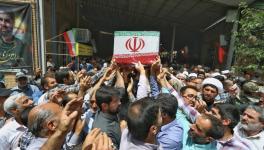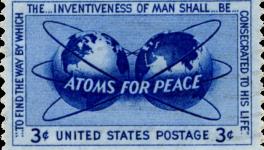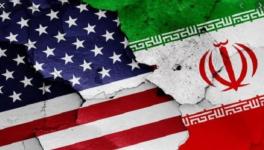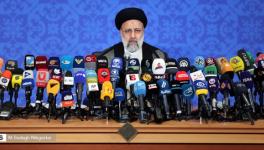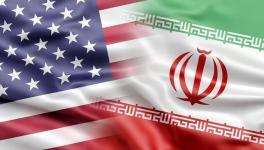Defying US Pressure, Gibraltar Court Orders Release of the Seized Iranian Tanker
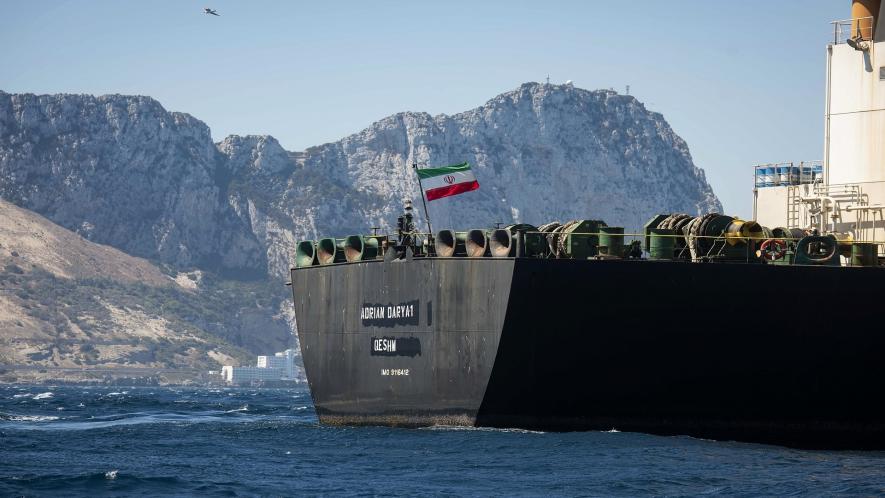
Grace 1, now renamed as Adrian Darya 1, has a cargo of around USD 130 million worth of light crude oil.
The Iranian oil tanker Grace 1 departed from Gibraltar on August 18 after it was set free by the country’s Supreme Court on August 15. The departure was delayed due to a last minute appeal filed by the United States to extend the detention of the tanker.
The court had also ordered the release of the captain of the ship and three of its officials who have been under detention for the last month. This is a significant development which can ease the tensions between Iran and the United Kingdom.
Grace 1, now renamed as Adrian Darya 1, has a cargo of around USD 130 million worth of light crude oil. It was seized by the British Royal Marines on July 4 while it was crossing the coast of Gibraltar, which is a British overseas territory. At the time of detention, the UK had alleged that the tanker was carrying oil to Syria in violation of European Union (EU) sanctions.
Iran had opposed the seizure and called it “an act of piracy”. It had also alleged that since the EU believed in extra territoriality and since Iran was under no European sanctions, there was no real legal basis for the seizure. Many alleged that the UK was working at the behest of the US.
Iran has given a written guarantee to Gibraltar’s Supreme court that the ship will not sail to countries that are subject to EU sanctions. However, the course of the tanker is not clear. As per the latest news reports, it is sailing to Greece.
The release of the ship is a big setback for the US that has an aggressive anti-Iran stance. The US had tried to prevent the release of the tanker by filling a last-minute appeal in the court. However, the supreme court of Gibraltar refused to entertain the appeal. On August 16, a US court issued a warrant to seize the tanker for its alleged link with the Iranian Revolutionary Guards Corp (IRGC), which is currently under US sanctions.
However, the government in Gibraltar refused to comply with the US warrant, citing its adherence to EU laws, according to which, the IRGC is under no such sanctions.
Sensing the possibility that the US might attempt to seize the tanker, Iran has issued a stern warning. According to its foreign ministry, such an act can “endanger shipping safety in the open sea”.
The US has imposed economic and political sanctions on Iran since its unilateral withdrawal from the 2015 Joint Comprehensive Plan of Action (JCPOA), or the Iran Nuclear Deal, last year. The objective of the sanctions is to “bring the oil exports from Iran to zero”. Iran had appealed to other signatories of the deal (the UK, France, Germany, China and Russia) to safeguard its economy from the illegal and unilateral sanctions, asserting its right to sell oil in the international market.
The UK’s refusal to release the tanker for almost a month had led to the worsening of its diplomatic relations with Iran. In retaliation, Iran had seized a British Tanker Stena Impero in the Persian Gulf on July 19. It claimed that the vessel had hit a fishing boat and ignored its distress calls. Iran is now expected to release the British ship soon.
The US and UK, along with other regional allies, have tried to create an international force to safeguard navigation in the region after the tanker war between the UK and Iran. The move has been opposed by Iran, who sees it as an attempt to curb free navigation in the region and endanger its naval security.
Get the latest reports & analysis with people's perspective on Protests, movements & deep analytical videos, discussions of the current affairs in your Telegram app. Subscribe to NewsClick's Telegram channel & get Real-Time updates on stories, as they get published on our website.









